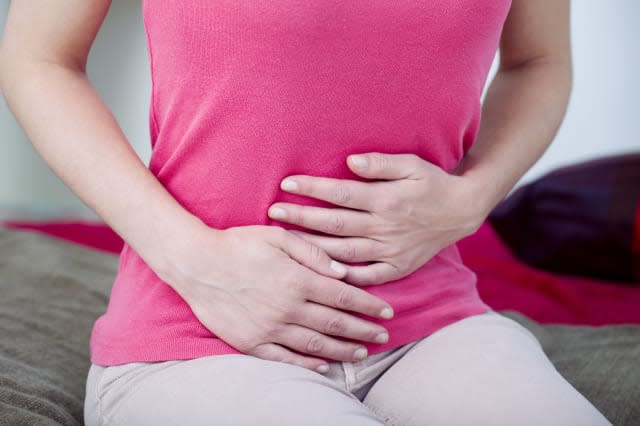Seven ways to beat menopausal bloating

Bloating is commonly experienced by women going through the menopause, often manifesting itself in the form of intestinal bloating and water retention. Caused by hormone fluctuations associated with the life change, the condition can come on over the course of a day – with uncomfortable swelling accompanied by flatulence or burping. Fortunately there are some simple steps you can take to combat the symptoms...
See also: Nightsweats: What causes them and what you can do
See also: Breast cancer risk from HRT higher than thought
Eat little, often and slowly
Most of us have three main meals a day – which can lead to peaks and troughs in fullness and hunger, along with slowing our metabolisms down at times. Switch to four, five or even six smaller meals a day and things should even out with less hunger and – perhaps paradoxically – less weight gain. Another top tip is to make sure you eat slowly and chew your food well, leaving your stomach less work to do when it comes to digesting it.
Avoid 'gassy' foods
You might already eat a healthy diet in terms of nutrition, but unfortunately some of the foodstuffs that are good for us can also contribute to that dreaded bloating sensation. Limiting brassicas in your diet, such as broccoli, cabbage and cauliflower, as well as legumes like beans, lentils and potatoes, can all help cut down on gas production. Even a mild lactose intolerance can cause problems, so try cutting out milk and soft cheese if you suspect you may be suffering from one.
Cut down on salt
A lot of us should be doing this anyway if we're honest with ourselves, but aside from the risk of increased blood pressure, stroke and even cancer – too much salt can also lead to bloating by prompting the body to retain more water. And salt sprinkled on our food is only a tiny proportion of the amount we consume. You'll also need to cut back on salty snacks, ready meals and convenience foods.
Eat fewer carbs
We've all had that bloated, uncomfortable sensation after a big bowl of pasta – and the same symptoms can also be prompted by other carbohydrate sources such as bread or potatoes. The obvious solution is to eat less, but it might also help to substitute "white" carbs for wholegrain ones, which can be easier to digest. If you're wheat sensitive, it could also be worth trying sourdough or other specialist bread rather than plain supermarket loaves. The method used to bake most supermarket bread cuts out one of the "rising" stages – and seems to cause more bloating.
Get some exercise
A good workout has a multitude of physical and mental benefits, and in relation to bloating it can aid with constipation as well as helping control weight. Sweating gets salt out of your body and working out with weights can build muscle and burn calories. Try to aim for 30 or 40 minutes of exercise each day. It doesn't matter if it's swimming, running, cycling or even just walking – it'll all have a positive effect. Yoga can also be beneficial too.
Switch to herbal teas
Caffeine in the form of coffee or tea is thought to exacerbate bloating in some cases, while herbal or aromatic teas like peppermint or fennel have been shown to alleviate gas and relax the digestive system. Black pepper and cayenne pepper can also help with bloating. The former can be ground onto dinner while the latter can be added during cooking or used to make a drink.
Flush it out
It might seem counter-intuitive, but drinking more water can help combat the effects of water retention. Drinking six to eight glasses of water a day is recommended – and drinking a large glass quickly can also be used as a quick-fix remedy by those suffering from a bout of trapped gas. Water helps flush out waste from the body and staying well-hydrated is important for general health too.



